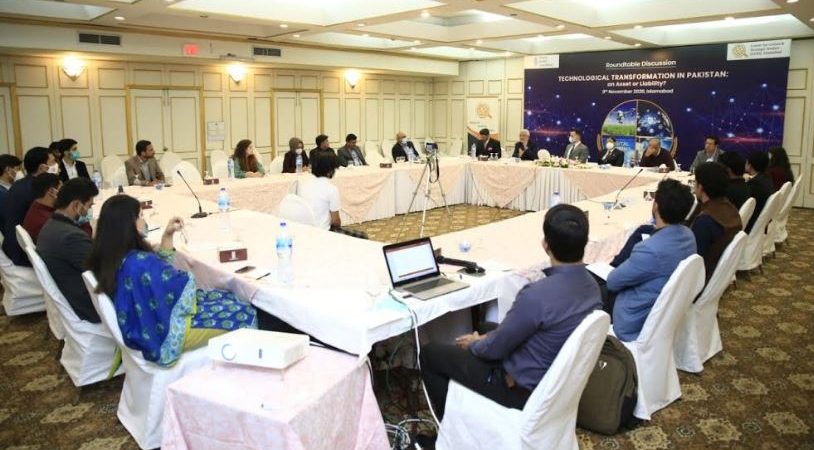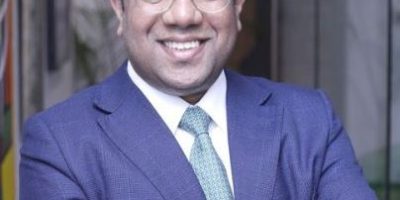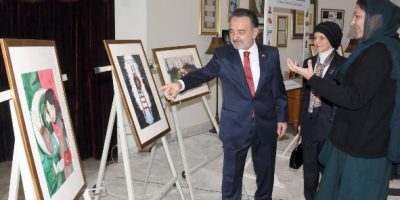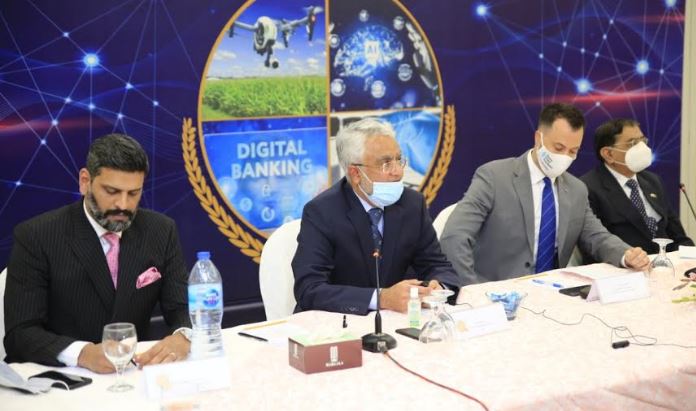CGSS, HSF jointly organize roundtable discussion at Margala Hotel

DNA
ISLAMABAD, NOV 9 – Center for Global & Strategic Studies (CGSS), Islamabad and Hanns Seidel Foundation, Pakistan jointly organized a roundtable discussion on “Technological Transformation in Pakistan: an Asset or Liability” at Margala Hotel, Islamabad.
The discussion commenced with the opening remarks of Mr. Ashfaq Ahmed Gondal, Former Federal Secretary of Information and Broadcasting & Senior Member Advisory Board, CGSS.
He stated that technological transformation has become a prerequisite for the development of a state. With the rapid developments in the field of science and technology along with increased digitalization across the globe, the traditional sphere of various sectors in Pakistan such as economy, governance, market-customer relations, healthcare, education and even security has largely transformed. It is therefore imperative to analyze these developments, discuss the challenges and their possible solutions equally.
Dr. Steffen Kudella, Resident Representative, Hanns Seidel Foundation, Pakistan in his welcome remarks stated that Artificial Intelligence will change the world more than anything else. This technological development is one of the greatest challenges of our future. Computers and robots are replacing more and more human jobs. If this trend continues, it could lead to an unequal society in which a very small elite of “technical experts” control the whole economy, and in which most humans become part of a huge unemployed mass. On the other hand, technological development provides a lot of reason to hope and has positive potential related to health care, traffic control etc. But the question arises, whom does technological development actually serve? Does it serve a tiny elite of people or does it serve all the people?
Mr. Tariq Malik, Former Chief Technology Officer, GHQ stated that the COVID-19 pandemic has accelerated change in Global economy. This pandemic is hastening digitization. When work is carried out remotely, it does not matter where it is done. Consumers’ switch from physical retail towards e-commerce has quickened. Health-care and education services have shifted online. The world will emerge from 2020 into an era of more intense great-power competition. The labour market will adjust to a world with less spending in cities and more in suburbs, and off shore – online. We must invest in new ideas, AgriTech, Taxation, logistics, security and adopt digital technologies with built in security.
Mr. Ammar Jaffri, Director General, Center of Information Technology (CIT) stated that we need to have a bigger database to know who is doing what. COVID-19 has done something that we could never have done and digital transformation has been taken to next level. Block chain is seen skeptically today. It is like stopping food or electricity if the block chain is stopped. We need to ponder collectively, individual planning and work is not enough. Our digital footprints should be all over Pakistan including every village.
Barrister Waqas Aziz Qureshi, Senior Law Expert & Managing Partner, Transact Advisory Services stated that technology is unescapable. Technology is an ecosystem which has connectivity with other ecosystems. Pakistan Electronic Crimes Act is trying to catch anomalies in electronic transactions. But it is a new law which is trying to catch up. The technology is rampantly evolving but the law of Pakistan is struggling to match the pace with it.
Other panelists stated that we need to see where we stand in digital economy today. We need to create a culture of cyber security in Pakistan. We Pakistani’s are very good in the field of digitization. We have everything but the main thing that we are missing is that innovative people leave Pakistan. We just need to form a comprehensive policy in this regard. We also need to devise an emergency response team at national level. If we are not going to indigenous development than technological development can become a liability. Other panelists of the Discussion included:
- Irfan ul Rehman, Former Head of Cyber Security Operations, PTCL
- Shakeel Ahmad Ramay, Economic Expert
- Ali Tanveer, Snr Cybersecurity Researcher, National Cyber Security Auditing and Evaluation Lab, NCSAEL
- Tariq Khattak, Managing Director, Clan Strategies
The event was attended by approximately 30 participants and was moderated by Lt Col Khalid Taimur Akram (Retd), Executive Director, CGSS.
Related News

Ali Farid Khwaja appointed as SECP commissioner
DNA ISLAMABAD: The Federal Government of Pakistan has appointed Mr. Muhammad Ali Farid Khwaja asRead More

National essay writing competition 2025 concludes with prize distribution ceremony
ISLAMABAD, JAN 27 /DNA/ – The Embassy of the Republic of Türkiye, in collaboration withRead More



Comments are Closed